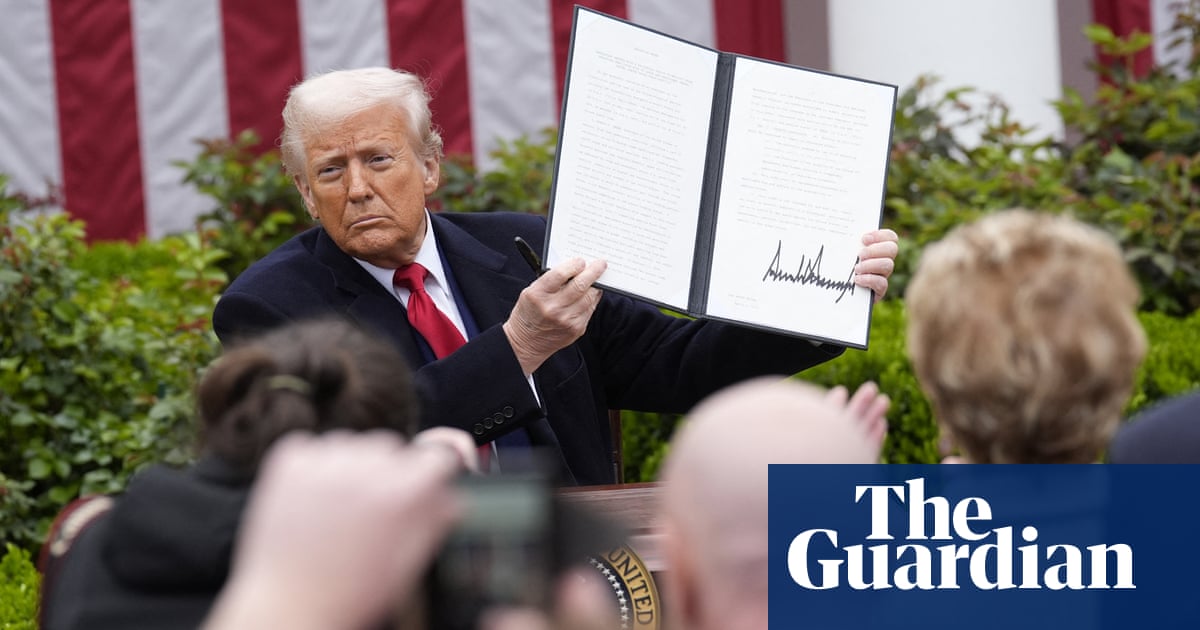“It must be horrible, funny and true,” the writer Terry Deary said of adapting his multimillion-selling children’s books series Horrible Histories for TV. First aired on CBBC in 2009, the show is now into its 11th series. With nine children’s Baftas and two British comedy awards under its belt, last week it added a Bafta special award – the only children’s show to win one to date. The International Prix Jeunesse named it the best non-fiction children’s show of the last 50 years.
Silly, subversive and obsessively scatological, Horrible Histories is more successful than an educational comedy sketch show for kids deserves to be. An unholy mix of Blackadder and Monty Python, it has transformed children’s television. There have been spin-off films and plays across the country, two riotous Proms and a grisly river tour along the Thames.
A generation of children can now recite the kings and queens of England thanks to the 2011 Monarchs’ Song, remixed for the coronation in 2023. Other greatest hits include Norman Style, in which William the Conquerer shows off his Gangnam Style moves and Born 2 Rule, sung by boyband the 4 Georges. Boudiccca has become a mini-feminist anthem, and Beatrix Potter, Enid Blyton, Jacqueline Wilson and Malorie Blackman come together in the Storyteller’s Little Mix sketch: “a hero can be a she-ro too!” No wonder kids give it full marks.
It is undeniably horrible and funny, but is it true? It might not be AJP Taylor, but Horrible Histories prides itself on ensuring accuracy is never sacrificed for a good rhyme or gag. And it’s not just tights and togas. As the show’s executive producer, Richard Bradley, has said, “Horrible Histories has a political dimension with a small p.” At a time when the curriculum and literary canon are under intense scrutiny, the show gives a lighthearted take on the most serious issues.
It is unafraid to take on the darker aspects of history, consistently championing the representation of women and diversity (with sketches on pioneering figures like Rosa Parks and Mary Seacole), and tackling Britain’s colonial legacy. Although Deary does not write the sketches, the books take a similar stance. In an interview for his first book for adults, A History of Britain in Ten Enemies, published in October, he said he loathed the British empire “with a passion”.
In 2020, the Daily Mail accused Horrible Histories of “trashing Britain” after the airing of British Things, a song to mark the day Britain left the EU, in which Queen Victoria’s servant sings: “Your British things are from abroad and most are frankly stolen.” (The sketch stars Sarah Hadland, who has swapped Victorian mourning dress for sequins as a contender in this year’s Strictly.)
In fact, Horrible Histories is a very British phenomenon, part of a long tradition of self-parody. This may explain why the model hasn’t been copied abroad. Fifteen years after it first exploded on our screens, there is still nothing like it.
Children’s television is in crisis. With more choices of entertainment at their fingertips than ever before, young viewers have been migrating to online platforms. But Horrible Histories continues to thrive. Next spring, the team is releasing Horrible Science – expect more blood, poo and death. Why change a winning formula? With its unofficial motto “laugh yourself smart”, the show is a tonic for our anxious times.

.png) 3 months ago
30
3 months ago
30













































